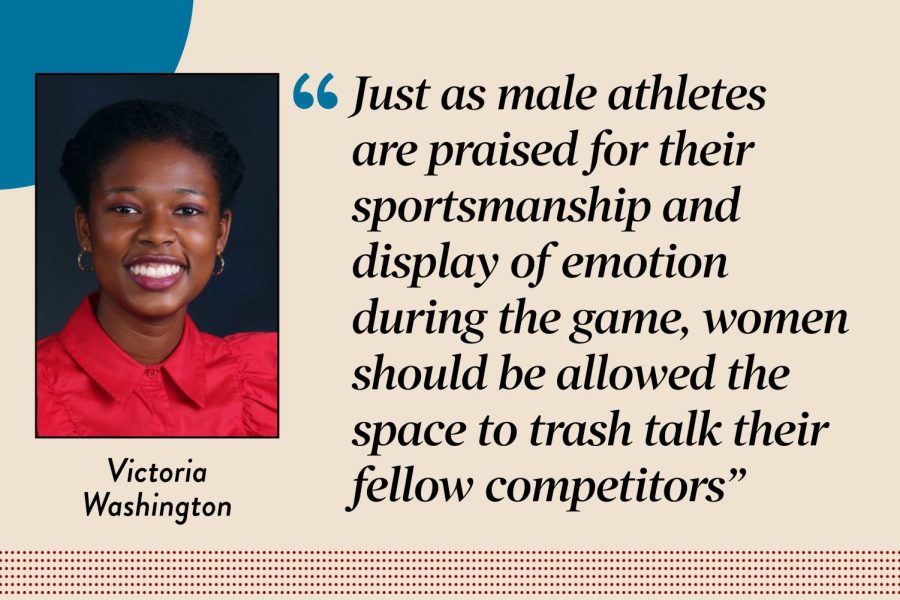Like their male counterparts, allow female athletes to display emotion during competitions
Midway Staff
Audience Engagement Manager Victoria Washington argues that just as male athletes are praised for their sportsmanship and display of emotion during the game, women, especially black women, should be allowed the space to trash talk their fellow competitors.
April 13, 2023
Maybe you watched the NCAA women’s basketball championship game on April 2. Maybe you didn’t, but you probably saw or heard about the subsequent Twitter war and online rage about the feud between Louisiana State’s Angel Reese and Iowa’s Caitlin Clark.
The LSU Tigers defeated the Iowa Hawkeyes 102-85, winning the school its first-ever March Madness Title. While the game stayed close until the end, much of what viewers remember about the event was the competitiveness and trash talk between Reese and Clark, two of the biggest standouts of the tournament.
With sports fans praising Clark’s “You Can’t See Me,” hand gesture yet calling out Reese’s use of the same gesture as disrespectful, viewers in recent years have pointed to the hypocrisy and perception of trash talk in women’s sports compared to men’s.
Just as male athletes are praised for their sportsmanship and display of emotion during the game, women should be allowed the space to trash talk their fellow competitors, and Black women in particular should be allowed this space.
Reese was criticized throughout the season for being “too ghetto” or “hood,” she said in a press conference following the championship game. The frequent scrutinization of Black women’s portrayal in sports media has shone a light on a larger pattern of difficulty for Black female athletes.
While Clark and Louisville guard Haley Van Lith were celebrated for their trash talk and emotion, Reese was criticized the most.
WNBA player and 2012 NCAA national champion Odyssey Sims praised the performance of Reese and finds trash talk to be part of the game. Sims says sports provide a way for athletes to express themselves. Women shouldn’t be criticized for not being lady-like enough, it’s all part of trade.
Ketra Armstrong, director of the Center for Race and Ethnicity in Sports at the University of Michigan, said Reese’s performance in the championship game demonstrates proudly showing up authentically and representing herself.
In the future, Black female athletes shouldn’t be criticized for showing the competitive nature of their sports, they should be judged by the quality of the game they play and allowed to be authentically themselves.




























































